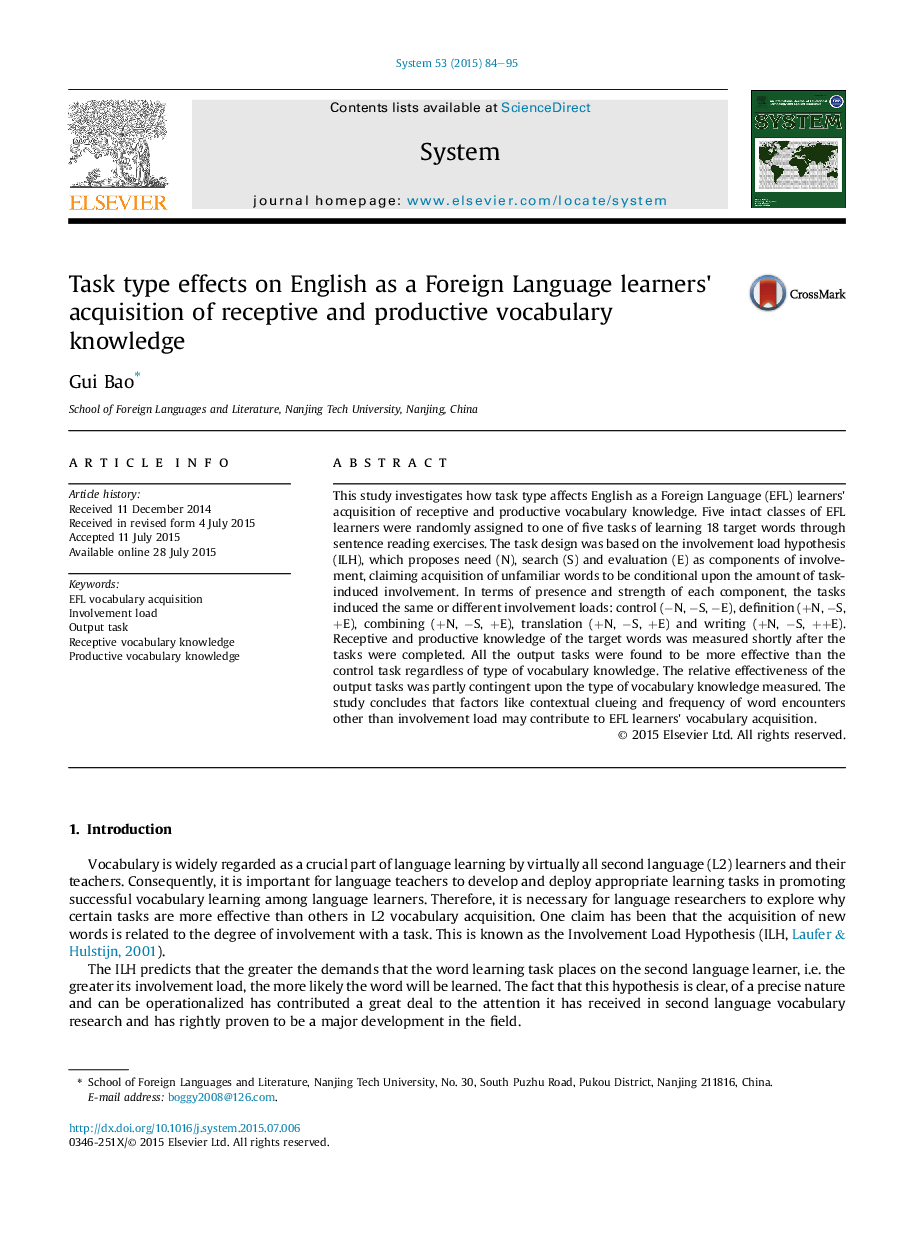| Article ID | Journal | Published Year | Pages | File Type |
|---|---|---|---|---|
| 373012 | System | 2015 | 12 Pages |
This study investigates how task type affects English as a Foreign Language (EFL) learners' acquisition of receptive and productive vocabulary knowledge. Five intact classes of EFL learners were randomly assigned to one of five tasks of learning 18 target words through sentence reading exercises. The task design was based on the involvement load hypothesis (ILH), which proposes need (N), search (S) and evaluation (E) as components of involvement, claiming acquisition of unfamiliar words to be conditional upon the amount of task-induced involvement. In terms of presence and strength of each component, the tasks induced the same or different involvement loads: control (−N, −S, −E), definition (+N, −S, +E), combining (+N, −S, +E), translation (+N, −S, +E) and writing (+N, −S, ++E). Receptive and productive knowledge of the target words was measured shortly after the tasks were completed. All the output tasks were found to be more effective than the control task regardless of type of vocabulary knowledge. The relative effectiveness of the output tasks was partly contingent upon the type of vocabulary knowledge measured. The study concludes that factors like contextual clueing and frequency of word encounters other than involvement load may contribute to EFL learners' vocabulary acquisition.
